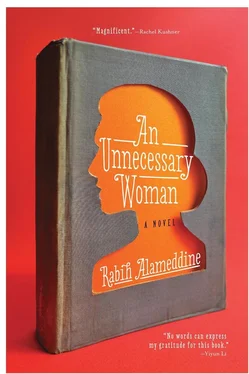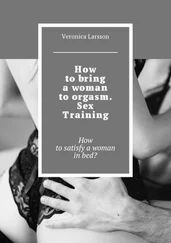Even under nonhostile circumstances, each of my half brothers has the ability to induce jitters in me. This is more than simply hostile. I can feel the room’s temperature rise. My tongue tastes of copper, which means I’m overbreathing, getting ready for fight or flight, ready to pick up my sword or jump on my horse. I slow my inhalation. I focus on calming myself.
I gently ask him what he’s doing.
“Dropping off your mother,” he replies. “It’s your turn. We shouldn’t be taking care of her. She’s your responsibility. You’re her daughter and you don’t have a family. You were supposed to be taking care of her for all these years. It’s time, it’s your turn. We can’t do it anymore.” He doesn’t yell, but waits for me to contradict. He wants a reason to shout.
I don’t give him one.
He takes a cigarette from a pack in his shirt pocket, holds it between his dry lips, dangling weakly, but he doesn’t light it. He’s a once-strong man reduced to mere rough and vulgar: doughy neck, broad shoulders, soft chin, eyes ringed with fatigue, distracted comb-over. His brown polyester pants, from a different suit than the jacket and vest, flap and squeal as he paces the foyer. He stares me down, waiting for me to cower. I do.
I cower because even though he looks like a parody of a tough guy — always did — I knew him once to be dangerous and menacing. At the beginning of the civil war in 1975, he put on the cheap camouflage outfit of one of the militias, a tragicomic dress rehearsal. Don’t ask me which militia. I didn’t care then and I don’t now. He looked like a caricature, his spindly torso (not fat then, just slightly convex) decorated with medals and his shoulders with betassled epaulettes, triumphantly imitating Napoleon, the Corsican Comet.
Bluster and hubris, that’s what he was, what he is, but that’s what makes him more dangerous in some ways.
Think Bush — that indecent amalgam of banality and perdition.
How nations sink. .
When Vengeance listens to the Fool’s request.
An unpleasant thought.
Whenever I think of Bush, I think of an image: a shattered visage in the desert sand.
My name is Ozymandias, King of Kings:
Look on my Works, ye Mighty, and despair!
A more pleasant thought.
My half brother the eldest frightens me. He didn’t while we were growing up; then, he only irritated me. We shared a mattress and I regarded him as nothing more than a space eater. He was obtuse, careless, and, according to my mother, infallible. He found inordinate pleasure in practical jokes and all manner of horseplay. He cultivated an obscene satisfaction in bullying his younger siblings.
After my husband left me, my mother did her best to convince me to follow him out the door and leave my home. She suggested that I exchange apartments with my half brother the eldest — his was small, fit for a lonely one; mine was larger, fit for a still-growing family, which included her, of course.
“Look at how many rooms you have,” she used to say. “How greedy do you have to be? How selfish?”
At first, I argued with her, but then I noted that it was more effective to ignore her, to allow her tongue unlimited flapping until it flagged. When it became obvious that her words weren’t having the desired effect, my half brothers jockeyed into the conversation. Each began to involve himself when his family increased its numbers — irresponsible reproduction being the family’s ennui annihilator.
My half brother the eldest first appeared at my door after the birth of child number two or three — I should know which because I was there at the hospital for the birth (I was still not ready to abandon the family completely). Bluster and hubris. He wasn’t able to talk then, to converse or negotiate, but simply began shouting, demanding that I do the right thing. I stopped opening my door when I knew it was he. My half brother the eldest banged his simian chest and cursed outside. He terrified me, an incontinent terror.
He returned and returned, again and again, the big bad wolf scaring me with his obstreperous threats, but you know, that worked against him. You not only inure yourself against the fear, finding it bearable after a while and coming to terms with it, you also absorb it. I absorbed it. It belonged to me and I to it; faithful companions, sisters, my fear and I.
I remained afraid, but I was no longer scared. Children get scared. With every return, with each bang on my door, my fear and I matured a little.
Before the AK-47, I waited with a sharp chef’s knife next to me (I wasn’t much of a cook, but I found a chef’s knife the most versatile). I waited, walked in circles, ovals, and squares, moved from room to room in my spacious apartment carrying the knife. Just in case. I don’t doubt that had he ever broken into my home, I would have stabbed him. I was that afraid. The imbecile.
My half brother the eldest’s first job was as a doorman at a three-star hotel. He loved it because of the uniform, felt it gave him some class, some cachet. The peasantry, when it wishes to escape peasantry, has always, for centuries, across all borders, escaped into a uniform. That was the only paying job he’s ever had, he loved it that much, but in the early days, he had a lot of problems with one of the managers, who mistreated him, he felt. Unfortunately, I may have unintentionally added to those problems. It seems the manager didn’t trust some of the employees, my half brother in particular. He’d wait at the employee exit and search certain people as they left, probably looking for towels, linens, or miniature toiletries. My half brother the eldest felt humiliated, and to his horror, one day as I was walking home from the bookstore, I saw him standing outside the hotel’s back exit, his arms and legs spread, the hotel manager kneeling before him patting him down.
Rage veined his face when he saw me.
Sad, because in that moment I felt sympathy, compassion even; in his vulnerability I identified with him, I saw him as family.
By the time the war started in 1975, I’d stopped inviting my mother to my apartment. I’d call her and she’d join me in one of the cafés on Hamra Street. One day her son and a group of his friends dropped her off. They were wearing imitation military outfits, driving a beat-up convertible and not a Jeep. When the car stopped, my half brother the eldest looked my way and whispered something to his friends, who sniggered. They looked less like militiamen than like a group of fraternity brothers out on the town, naive hooligans, ill-mannered boys trying to look suave. I could see them in bright red suede windbreakers and flower-patterned silk shirts with wide lapels. My half brother looked to be the eldest of the group, a man playing at being a boy. He had already begun to collect medals.
“He sleeps with them on,” my mother told me as we ordered our coffee.
I couldn’t tell from her straightforward tone whether she was proud or dismayed that her son kept the intimate company of fake medals in bed.
Sleeping with the medals was not what horrified me. She informed me that he had captured an Israeli spy and they’d dealt with him. She used the innocuous word dealt . I tried to extract more information but she knew nothing. Boys’ dreams are mothers’ nightmares, but in my mother’s case, her boy’s dreams were her oblivions. I couldn’t imagine my half brother being able to deal with anything more complicated than opening car doors for his betters.
In the newspaper a few days later, there was a small item saying that the hotel manager had been found dead on a side street, bound and tortured. I couldn’t imagine my half brother killing the man. He was too much of a coward. I could, however, imagine that he lied, that he informed others about his nemesis, that he poured pestilence into the ears of a future politician, that he witnessed the elimination of his humiliator.
Читать дальше












